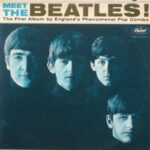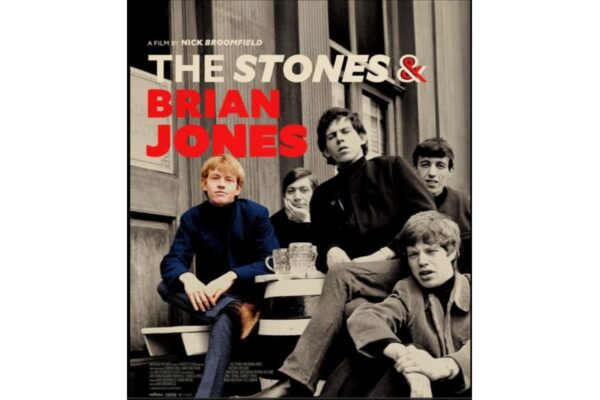

The Rolling Stones have been together, off and on, for more than 60 years, while The Beatles famously broke up in 1970, a scant seven years after they first made it big on the music scene. With the success of The Stones’ 2023 album Hackney Diamonds, we thought it was time to revisit that old controversy: Beatles or the Stones? – and why. Here are our top 10 reasons for the longevity of The Rolling Stones, despite the undeniably great songwriting team on the other side of the fence – that of Lennon-McCartney. Oh, and btw, we’re leaving Yoko Ono completely out of this discussion.
Note: we’re not disputing that the music of both bands will last for decades; we’re focusing on the groups’ performing, recording and touring as a unit.
1. The Rolling Stones began as a blues band; their heroes were Chuck Berry and Howlin’ Wolf. The Beatles began as a pop band, having named themselves after The Crickets, Buddy Holly’s backing band. The Rolling Stones named themselves after the Muddy Waters tune “Rollin Stone”. Blues can be played for a lifetime, but the popularity of any pop artist is measured in months. Even the greatest of pop stars (Elvis, Roy Orbison, Gene Pitney, Del Shannon, etc.) found themselves constrained by the necessity to produce hit singles.
2. The Rolling Stones never stopped touring and never lost their love of performing. The Beatles last official paid public concert took place at Candlestick Park in San Francisco in 1966. They complained the crowds were so loud at their concerts that they couldn’t hear the sound of their own instruments. Also, once they had made their magnum opus Sergeant Pepper’s Lonely Hearts Club Band, they couldn’t reproduce their current material on stage in any convincing manner. They became a studio band, and internal squabbles made that studio time intolerable to each of The Beatles. Not so with The Stones. Touring energized them and also made them wealthy beyond imagination.
3. Rock is about rebellion, and The Stones were always portrayed as the rebels. Mick and Keith today? – they have no right to be as lively on stage as they are at their advanced ages – no longer rebels but definitely survivors.
4. The cool girls always liked The Stones better. If you think this doesn’t keep a band together, then you’ve never been in one.
5. The Beatles’ ideas were hardly their own to begin with. EMI staff producer and arranger George Martin in fact was often called the fifth Beatle. He played piano, had a classical background, and a keen ear for turning average pop material into great hits. He was in control of their recordings. When The Beatles turned to other producers, the result was sub-standard. The Stones were successful with many producers, notably Jimmy Miller, but also self-produced many of their own great recordings under the name “The Glimmer Twins”.
6. The success of solo projects from McCartney’s Band on the Run to George Harrison’s surprisingly rewarding album All Things Must Pass, along with the sporadic output of John Lennon effectively ensured they would never get back together. Regarding the Stones’ solo works, the less said the better, which was actually good news for music fans. They had to stay together as The Stones.
7. Mick Jagger was the best front man of any band ever. He was a decent guitarist and was even accomplished on the blues harmonica, but he needed a band behind him. His swagger and Keith’s riffs, along with the great rhythm section of Bill Wyman on bass and Charlie Watts on drums added up to a potent combination.
8. The Beatles were poor businessmen and squandered their chances to build an empire. Apple was perhaps the worst-run musical organization in history. They signed James Taylor and didn’t keep him. They had Badfinger and never marketed them properly. As for the marketing genius of Mick, a former business student, the image of his too-long sardonic tongue is one of the most recognizable logos in the world to this day, finding its way onto dozens of products, only some of which are records. Pete Townshend of The Who famously (and somewhat bitterly) said: “The Rolling Stones are not a band. They are a T-shirt company.” And a hugely successful one. Jagger today is a billionaire.
9. The Stones created iconic riffs that sound good even today. Keith Richards came up with the lead guitar part on “Satisfaction” – there isn’t a guitar player anywhere who hasn’t learned that lick. Then there are these musical standouts: the best disco groove of all on the Some Girls album with “Miss You”, and the great “Under My Thumb”. Consider their opening salvo on their first album – a truly blistering “Not Fade Away” – outdoing anything The Beatles ever did when they tried to emulate Buddy Holly. Consider also the staying power of “Sympathy for the Devil”, and “Street Fighting Man” – great riffs, great melodies, with visceral excitement jumping out of your speakers at every listen, no matter whether via a cheap car radio or a ten thousand dollar system.
10. Last, but far from least, The Stones solved their internal squabbles. Mick and Keith always found a way to put their considerable egos aside on behalf of the band’s survival and longevity.



